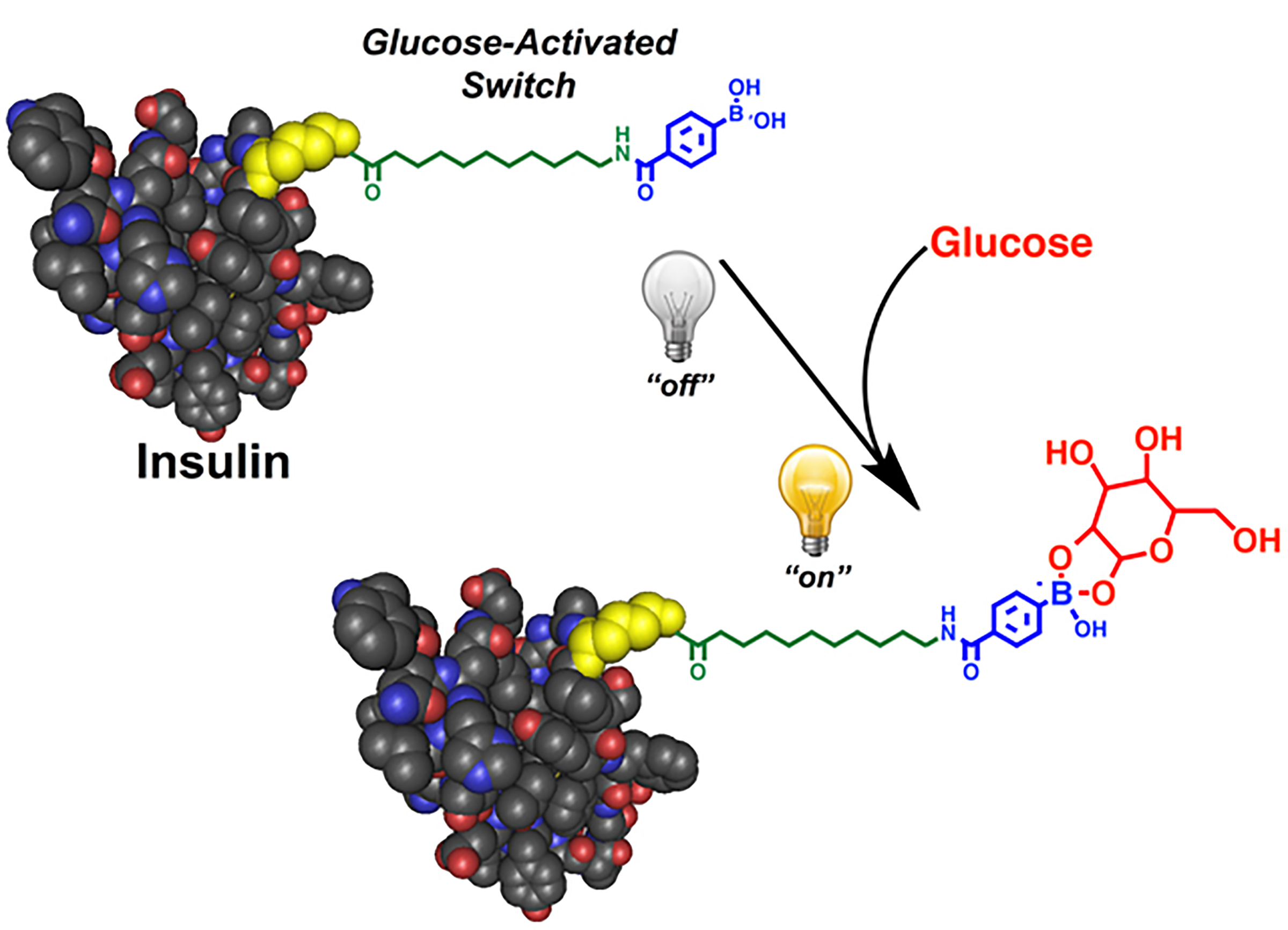To mitigate the dangers inherent to insulin dosing, a University of Utah biochemist and fellow scientists have created Ins-PBA-F, a long-lasting “smart” insulin that self-activates when blood sugar soars.
Tests on mouse models for type 1 diabetes show that one injection works for a minimum of 14 hours, during which time it can repeatedly and automatically lower blood sugar levels after mice are given amounts of sugar comparable to what they would consume at mealtime.

Credit: Matthew Webber
Ins-PBA-F, acts more quickly, and is better at lowering blood sugar, than long-acting insulin detimir, marketed as LEVIMIR. In fact, the speed and kinetics of touching down to safe blood glucose levels are identical in diabetic mouse models treated with Ins-PBA-F and in healthy mice whose blood sugar is regulated by their own insulin. A study showing these findings will be published Feb. 9 in PNAS Early Edition.






Comments